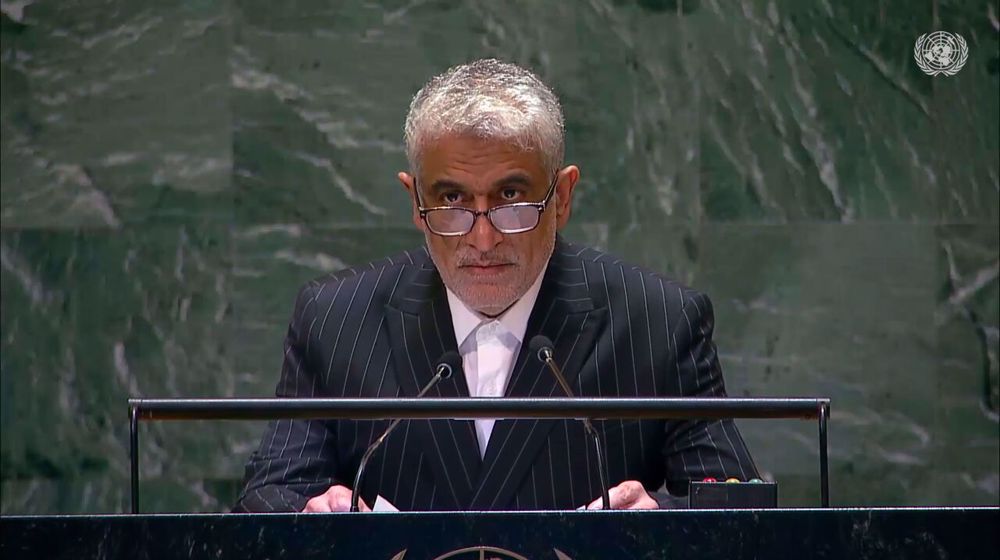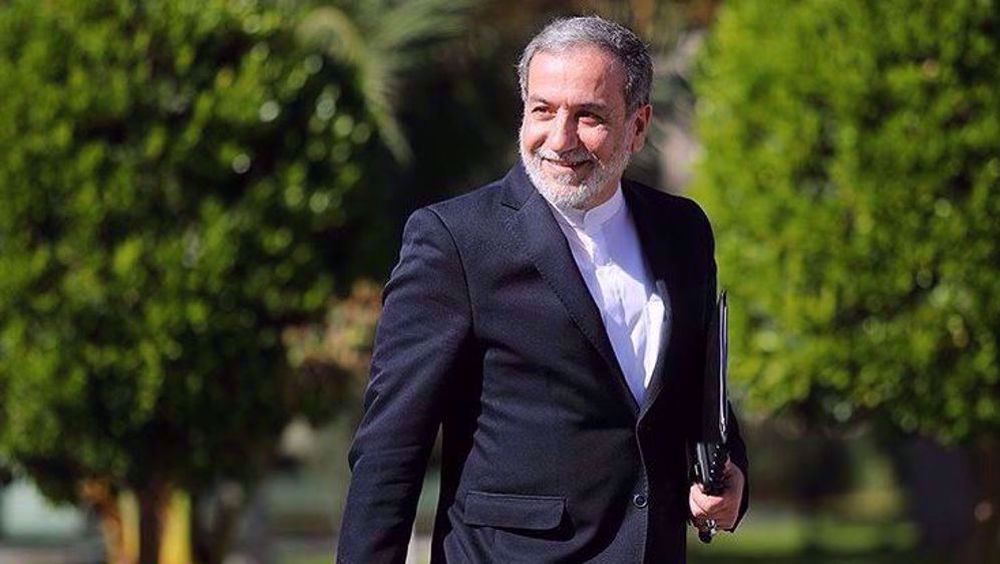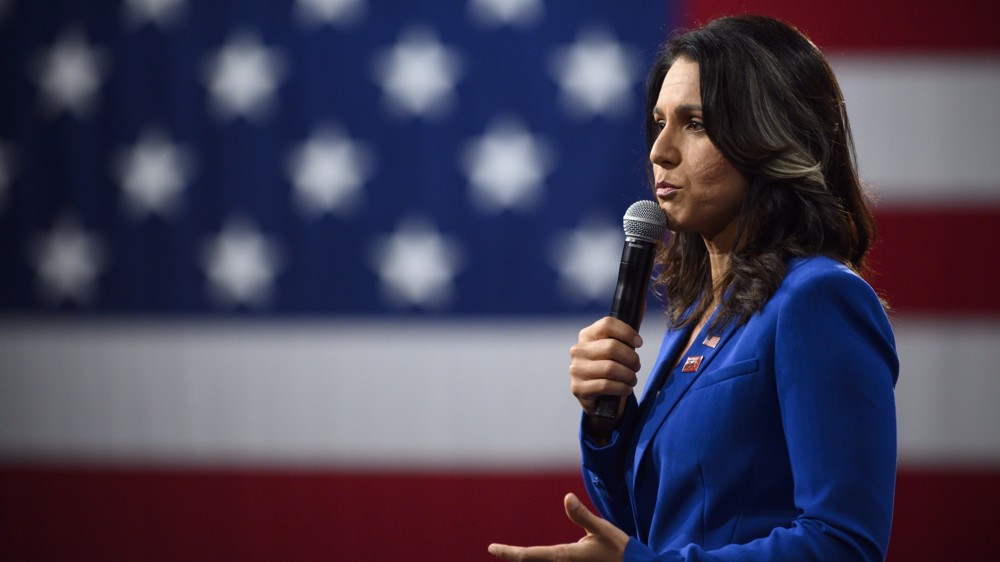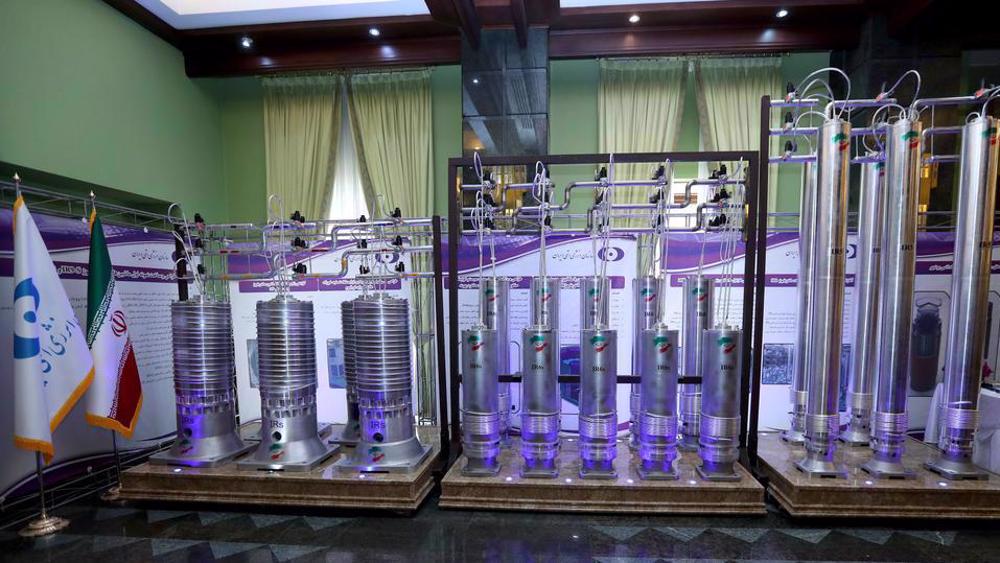Iran produces first batch of 60% enriched uranium
Iran’s scientists have managed to produce the country’s first batch of 60-percent enriched uranium in Natanz days after a nuclear facility came under a terrorist attack, top officials say.
"60-percent enrichment is currently underway at the Shahid Ahmadi Roshan nuclear facility" in Natanz, head of the Atomic Energy Organization of Iran Ali Akbar Salehi said Friday.
Salehi said any level of enrichment is now possible for Iran, adding despite the recent sabotage, enrichment continues at the Natanz facility.
He said the 60-percent enrichment was completed in two days. “Production of 60-percent enriched uranium is currently 9 grams per hour,” Salehi said.
The 20-percent enrichment which was already underway at the facility continues in parallel with the 60-percent enrichment, he said, adding "the Natanz site is still standing and moving forward vigorously".
"One of the deterrents is the readiness of our devout youth who immediately fix up the problem whenever the enemy creates an accident and move a few steps forward as well,” Salehi said.
The announcement came days after Iran informed the International Atomic Energy Agency (IAEA) of a plan to start 60-percent uranium enrichment, following what Iran called “nuclear terrorism” against Natanz.
“I am proud to announce that at 00:40 last night ... young and pious Iranian scientists were able to obtain a 60% enriched uranium product,” Parliament speaker Mohammad-Baqer Qalibaf wrote in a Persian tweet on Friday.
"We congratulate the brave people of the Islamic Iran on this success; the will of the Iranian people is miraculous and will thwart any conspiracy," he added.
The 60-percent uranium is used to make a variety of radiopharmaceuticals, which are hard to come by amid the most aggressive US sanctions ever on Iran.
Salehi said enrichment to 60-percent purity level has different applications, one of which for the production of radiopharmaceuticals.
The production is possible with 20-percent enrichement, but "as the richness increases, our efficiency increases and the amount of molybdenum also increases, while the production time becomes shorter and the process easier", he added.
Molybdenum has many civilian uses including in medical imaging. It is also used as a catalyst in the refining of petroleum and an alloying agent in steel.
The act of sabotage came a day after Iran began feeding gas to cascades of new, advanced centrifuges and unveiled 133 achievements to mark its national nuclear technology day.
Iranian officials have said while the aim of the attack was apparently to limit Iran's nuclear capability, all the centrifuges that went out of order due to the incident were of the IR1 type that are being replaced with more advanced ones.
On Saturday, an order was given to feed gas to 164 all-Iranian IR6 centrifuges, with 10 SWU – separative work units that indicate the amount of separation done by an enrichment process.
The IR6 is the most sustainably efficient centrifuge Iran currently deploys, which will be mass-produced on an industrial level. The machine is able to produce 10 times more uranium hexafluoride (UF6) than IR1, Iran’s first-generation centrifuges.
Presiden Hassan Rouhani also gave the order to begin feeding gas to test a number of 30 IR5 centrifuges and 30 IR6s centrifuges, numbers that could grow if they are successful.
Moreover, mechanical tests began on the top-of-the-line IR9 centrifuge that has a separative capacity of 50 SWU.
Also in Natanz, a unit to assemble and evaluate advanced centrifuges was launched, where Iranian experts said more than half of all operations are currently industrialized.
Foreign Minister Mohammad Javad Zarif has said the perpetrators of the sabotage are wrong to think the act will undermine Iran’s position in Vienna negotiations which are held with the aim of lifting US sanctions on the Islamic Republic.
“Incidentally, this cowardly act will strengthen our position in the negotiations,” Zarif said on Monday.
Both the US and the Europeans have kept silent on the attack, and expressed concerns over Iran's 60-percent enrichment, instead. The Europeans are one of the interlocutors in the Vienna talks - while the US is not because it is no longer a party to the 2015 nuclear deal with Iran.
In a surprise move, the European Union on Monday imposed sanctions on eight Iranians, including head of the Islamic Revolution Guards Corps (IRGC), raising the ante in hostile measures against Tehran.
Iran's chief negotiator Abbas Araqchi told Press TV on Thursday that the EU sanctions are meant to undermine the negotiations.
“The Europeans not only ignored this important act of sabotage, but also they were busy imposing new sanctions on Iran and that was totally unacceptable,” he said in Vienna.
Araqchi said participants at a Thursday session had “very tough exchanges of views”, but they all agreed to move forward.
“They have to lift all sanctions and we need the list of sanctions and this should be our job in this round of discussion,” he said of the US sanctions on Iran, asserting that without a list, “I don’t think we can make any progress.”
The list should also include the third parties which have been sanctioned because of their cooperation with Iran, Araqchi said.
“Before we see the list, we cannot judge whether it is as complete as we want or not.”
On Wednesday, Leader of the Islamic Revolution Ayatollah Seyyed Ali Khamenei warned against "attritive negotiations", saying protracted talks are harmful to Iran.

IAEA can resolve remaining issues through independent approach, Iran says

Deal within reach if US shows genuine will in Oman talks: Araghchi

US intel report: Iran ‘not building nuclear weapon’
China slaps 84% tariffs on US goods, says ready for trade war
Israel kills at least 38 Palestinians, including children, in airstrikes on Gaza
VIDEO | Another American citizen killed by Israel
VIDEO | Trump's attack on free speech
US freezes billions in university funding, revokes visas of pro-Palestine students
Pezeshkian: Iran will never compromise on nuclear achievements
Three killed, three injured in mass shooting incident in Virginia
People rally in Tehran to condemn intensified Israeli genocide in Gaza







 This makes it easy to access the Press TV website
This makes it easy to access the Press TV website